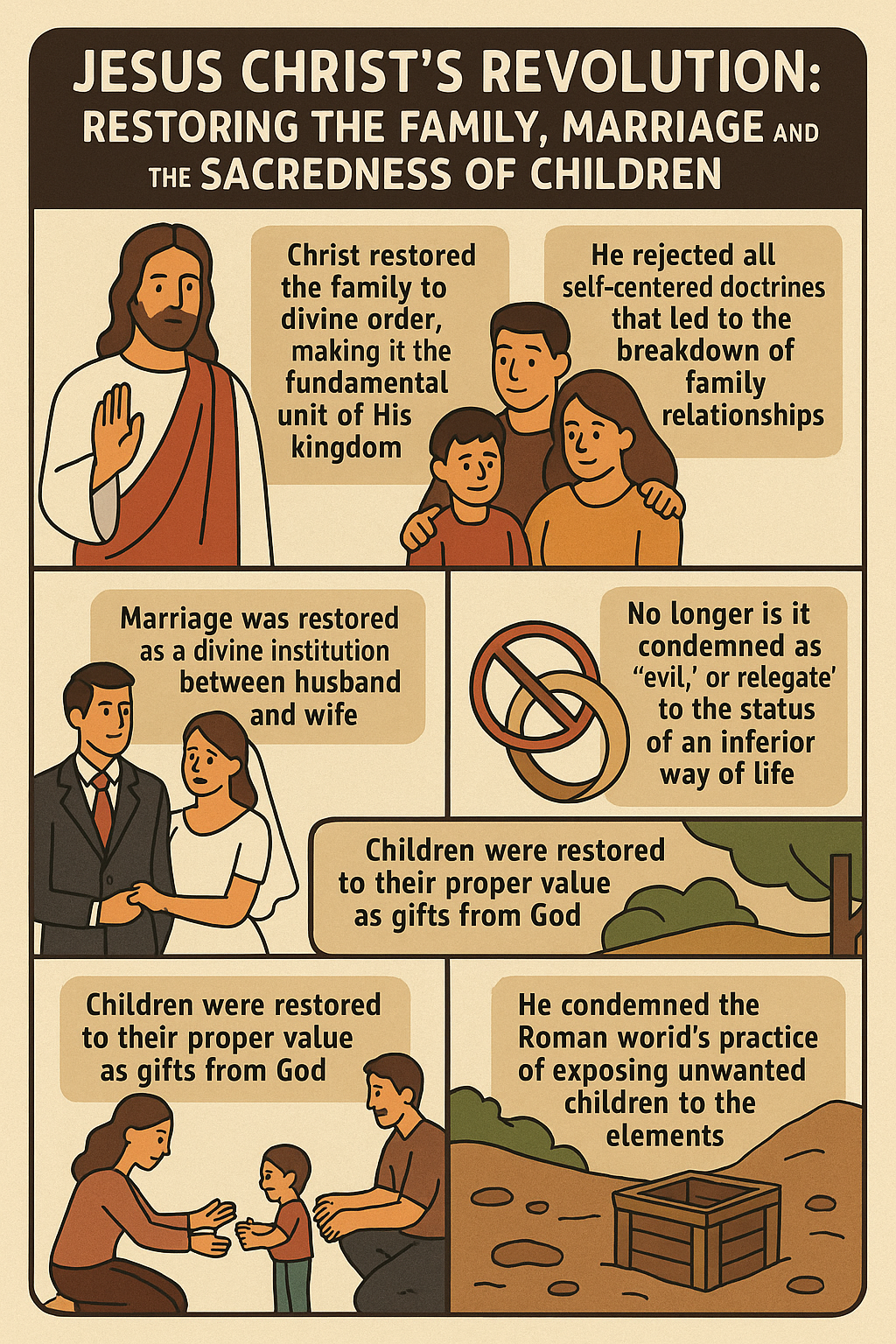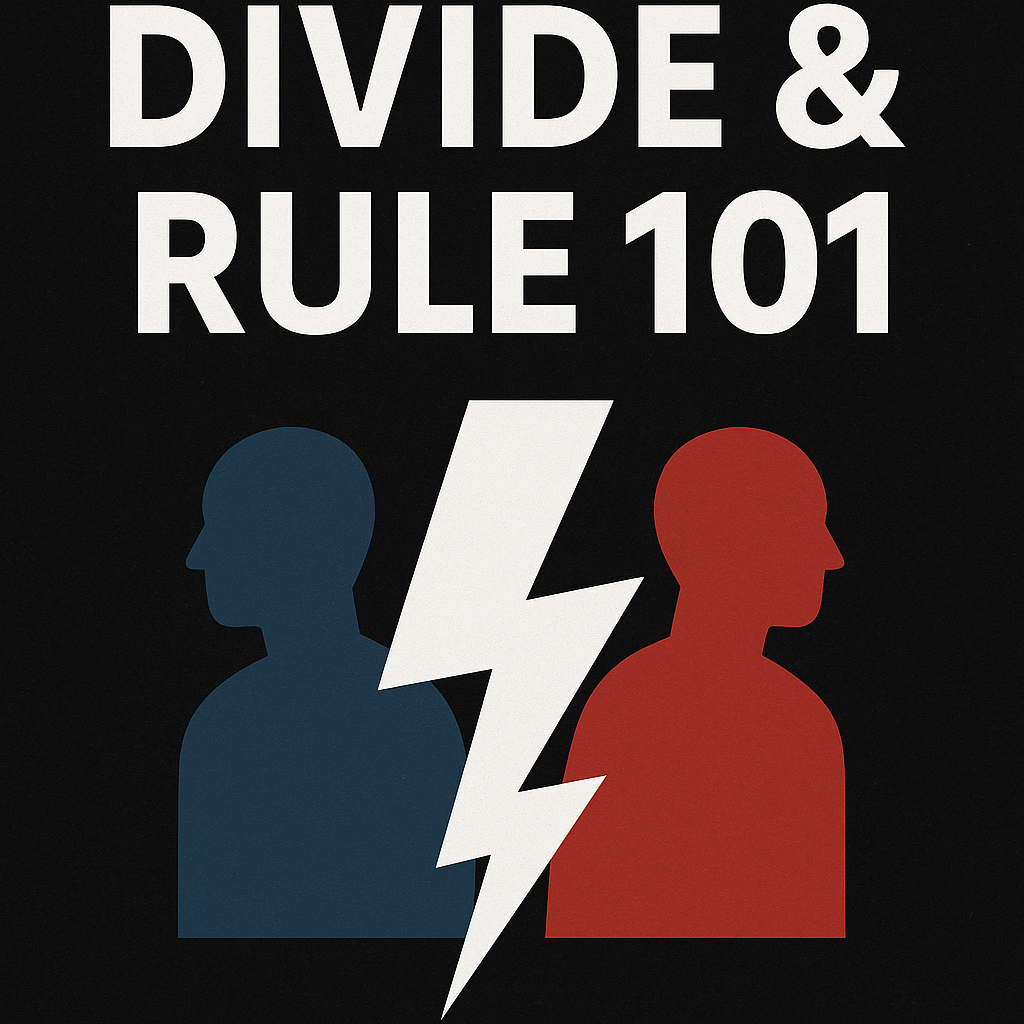When Jesus Christ walked the earth, He did not come merely to reform religious practices—He came to transform the very heart of human relationships. At a time when divorce was casual, women and children were often marginalized, and families fractured under cultural pressures, Jesus introduced a revolutionary vision: one centered on love, commitment, faithfulness, and the dignity of every soul.
Let’s break down how Jesus’ example and teachings directly revolutionized family, marriage, divorce, and children:
Jesus Elevated Marriage to a Sacred Covenant
In ancient Judea, divorce was widespread. Men could easily discard their wives for almost any reason, and women had few rights. Marriage was often treated more as a contract than a covenant.
Yet when questioned about divorce, Jesus pointed people back to the original design:
“Haven’t you read,” he replied, “that at the beginning the Creator ‘made them male and female,’ and said, ‘For this reason a man will leave his father and mother and be united to his wife, and the two will become one flesh’?
So they are no longer two, but one flesh. Therefore what God has joined together, let no one separate.”
— Matthew 19:4-6
Key Revolution:
- Jesus taught that marriage is a divine union, not to be broken casually.
- He rejected the lax cultural views of divorce, stating that divorce was permitted by Moses only because of human “hardness of hearts” (Matthew 19:8).
- He re-centered marriage around faithfulness, sacrifice, and oneness, preparing the ground for the Christian view of lifelong marital commitment.
Jesus Protected the Sanctity of Women and Marriage
In a society where women were often viewed as property or burdens, Jesus treated women with radical dignity. His teachings protected women from being discarded and devalued.
For example:
- He defended the woman caught in adultery from stoning (John 8), teaching mercy, repentance, and compassion.
- He spoke to women publicly (e.g., the Samaritan woman at the well), which broke cultural taboos.
- He elevated the loyalty and love of women, showing that faithfulness and devotion mattered more than social standing.
Key Revolution:
- Jesus re-established women’s worth, not based on their relationship to men, but on their identity as beloved daughters of God.
- He challenged the idea that men could unjustly dismiss their wives, upholding accountability and fidelity in marriage.
Jesus Revolutionized the Value of Children
In the ancient world, children were often seen as less valuable until they reached adulthood. Infanticide, neglect, and child exploitation were tragically common.
But Jesus said:
“Let the little children come to me, and do not hinder them, for the kingdom of heaven belongs to such as these.”
— Matthew 19:14
And even more powerfully:
“Whoever welcomes one such child in my name welcomes me.”
— Matthew 18:5
Key Revolution:
- Jesus centered children in His teaching about humility, trust, and the Kingdom of God.
- He warned that anyone who causes a child to stumble would face severe judgment (Matthew 18:6).
- He portrayed children as models of the faith—simple, trusting, humble, pure.
Jesus Restored the Family as a Foundation of Society
Christ also taught that loyalty to God must even transcend natural family ties, but not to destroy them—rather, to deepen them through love rooted in truth. Following Him would mean redefining family not merely by blood, but by shared faith and obedience.
“Whoever does the will of my Father in heaven is my brother and sister and mother.”
— Matthew 12:50
Yet at the same time:
- He honored parental love and responsibilities (e.g., His concern for His mother at the Cross, entrusting her to John — John 19:26-27).
- He reinforced the Fifth Commandment (“Honor your father and mother”) in His teachings (Matthew 15:4).
Key Revolution:
- Jesus built a culture where love, loyalty, truth, and service strengthened families.
- He restored the family as God’s design for human flourishing.
Conclusion: A Way of Life, Not Just a Religion
Jesus Christ did not come to simply tweak social practices. He came to rebuild humanity from the inside out—starting with the most basic and sacred institution: the family.
Through His words and His life, Jesus:
- Elevated marriage to a holy covenant.
- Gave dignity to women.
- Treasured and protected children.
- Called families to serve one another and God with love and faithfulness.
Thus, Christianity from the beginning was pro-marriage, pro-family, and pro-life in the deepest and truest sense—not merely in doctrine but in everyday relationships and responsibilities.
The way forward for families today is to return to these Christ-centered principles, especially in a world that often tears at the foundation of marriage, family, and childhood innocence.
By doing so, we not only strengthen families—we help build the Kingdom of God on earth.






